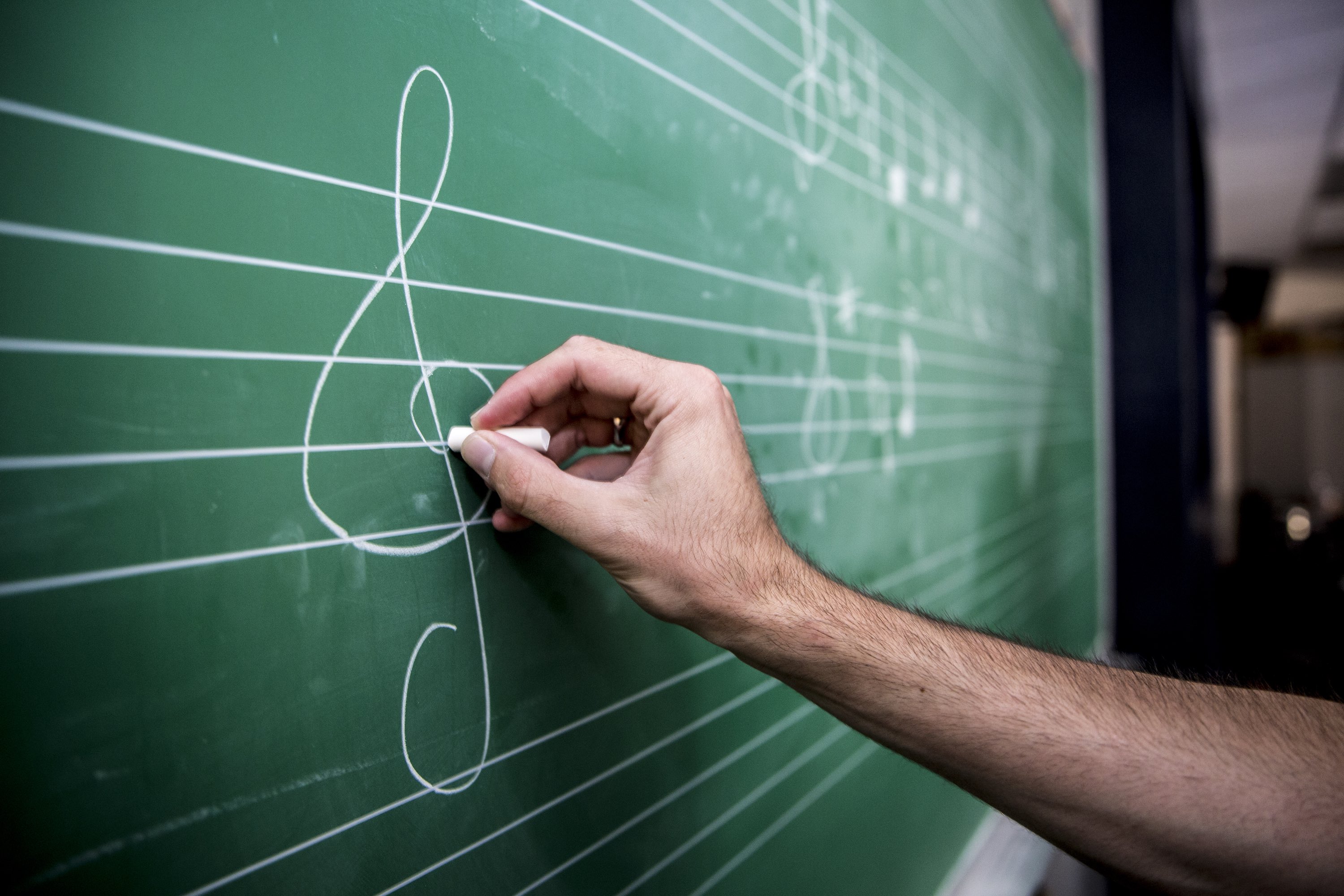

It is common for a student to walk through the Church of Fine Arts on the way to or from class, listening to the notes of songs as instruments sneak through the cracks of the doors and into his or her ears. To many, it is a mystery who is producing such lovely music. What many at the University of Nevada, Reno don’t understand is what music education majors do to be able to make that music.
Pursuing a degree in music education is a unique experience at UNR. It takes five years to accomplish, ten semesters of upwards of 12 credits each, countless hours of practice outside the classroom, and even more hours in schools getting firsthand experience with students. The reason for an extra year is because the student needs to acquire a mastery in teaching as well as in a variety of instruments. The woman in charge of this rigorous program is Dr. Kate Pollard. Dr. Pollard is the coordinator of the music education program and an instructor for many of the music education courses. She constantly works towards improving and growing the program, integrating the music and education curricula from the very first semester.
UNR may not have the biggest music education program in the country, but it is up there with the best where quality is concerned. Many of its participants agree that it boasts a varied faculty whose commitment to their students is unmatched. Brandon Pierce, a junior in the program, says “That’s why I chose UNR, because of the faculty.” A student can join orchestra symphonic band, wind ensemble, jazz ensemble, or marching band. The program offers a variety of musical outlets to match each student’s interests.
To be accepted, a student must audition as well as apply to the university through the regular application. They perform in front of a panel of judges as an instrumentalist or vocalist. They have to show an adeptness at reading music and are expected to already have a certain level of experience. These high expectations are necessary because many of the courses a music education major will take their freshman year will expect that they already have a basic background of knowledge. Every student, regardless of focus, will be expected by graduation to be able to play the piano and be proficient in a variety of other instruments. To graduate, similar to what some other students would experience as a thesis or a senior project, students have to perform in front of another panel of judges. This performance is done using whatever instrument the student decided on for their emphasis in their major. If they are a vocalist, they’d sing. If they focused on the trumpet, they’d play trumpet. They are judged on the musicality of the piece, tone, dynamics or volume, and notes missed. It all goes into their final grade.
Yet another graduation requirement is four semesters of a course known as sight singing. This is notoriously one of the most difficult classes a music education major will encounter. The reason this class can be so hard is because it is based on ability not knowledge. Aurora Smith, a junior, says “It’s only something you can practice, but it’s essential to be a musician and move forward.” Sight singing tests a musician’s ability to hear different notes and pitches and recognize them. Based off of this, they must sing an entire sheet of music accurately. Even for those who come to the university with a background in instrument or vocals it is a lot of hard work. Dr. Pollard says the faculty keeps a closer eye on students while in those classes, to make sure that they are grasping the concept and proving their skills accordingly.
UNR’s program draws students in, not only for its rigor and opportunity for growth, butfor its obvious care for its students. With just 50 or 60 students in the whole program, many of them grow close, especially since most of their classes all take place in the Church of Fine Arts. Dr. Pollard shared that the music department often feels like family, seeing each other so often and getting to watch the students grow in their studies.
After graduation, students have lots of options. This is purposeful. Dr. Pollard shared that graduates have to be prepared to teach anything from elementary school to high school and anything as focused as a jazz ensemble or as general as a music appreciation course in high school. EJ Monjaras, a freshman, hopes to use his degree to someday be a college band director. Although music education majors have demanding schedules they try not to miss out on some of the more social events and opportunities. Marching band members get to play at football events and even travel with the team. Greek life doesn’t forget about them, either. There are three different Greek organizations available that focus on music. Phi Mu Alpha, a fraternity for men; Sigma Alpha Iota, a fraternity for women; and Kappa Kappa Psi, a fraternity that focuses on service and is heavily involved with the marching band are all offered at the university. All of these do not require certain majors or instrumental skill. They only require members to have a love for music.
Music education majors might have been a very talented mystery to students in the past, but it takes a great deal of commitment and love for their field. It takes a special student to put their heart and soul into the work they produce and to be able to share that love and appreciation of their music to others.
